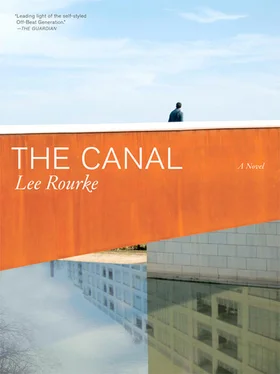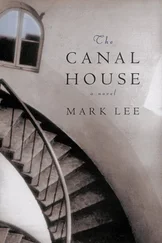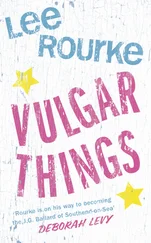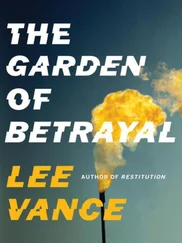I am atomised with you
We are suspended in dread.
Martin Heidegger
I started walking to the canal one day out of boredom. It’s not that I’m particularly fond of canals; I don’t give them much thought usually. I simply awoke one morning and decided, rather than walk to work as normal I’d walk to the canal instead. It was something about the light. I’d say it was almost crepuscular, even though it was some time between 8:30 and 9:00 in the morning and light can’t be described as crepuscular at that time of the day. But to me, on that particular morning at least, it could.
Some people think that boredom is a bad thing, that it should be avoided, that we should fill our lives with other stuff in order to keep it at bay. I don’t. I think boredom is a good thing: it shapes us; it moves us. Boredom is powerful. It should never be avoided. In fact, I think boredom should be embraced. It is the power of everyday boredom that compels people to do things — even if that something is nothing.
Along the towpath of the canal, halfway between Hackney and Islington, I stopped at a brown bench. It was nestled between two large hedges that had long since overgrown. The towpath was busy with people walking and cycling towards Islington on their way to work. Although I could pretty much see everything from the bench, it was hard for passers-by to see me until they were almost in front of me. It was the perfect spot for me to sit, undisturbed; somewhere I could do nothing and simply watch it all go by. The air was still, silent — I could smell the water. It made me think of the dredgers I used to watch as a child, the hard work they did cleansing the bed of the canal. Behind the bench was the exterior wall of a health centre used by the Packington Road Estate tenants. To the immediate left of this wall, if I faced forwards towards the murky canal, was a rusting iron bridge spray-painted in graffiti — the kind of graffiti the perpetrators must have had to defy gravity to apply — near a new-ish sign that read: Shepherdess Walk. A tangle of iron railings and fences guarded the bridge from people who thought it might have been a good idea to hurl themselves off it into the canal — probably to spare them from embarrassment, as the drop into the canal wouldn’t lead to their deaths due to it being too short. Below the bridge, on a cemented-smooth stanchion was some original Banksy artwork that had been there a long time: a stencilled negative image of a man in a hood rolling a cigarette, or, more likely, a joint. It looked sinister, it looked real, it gave me the shivers — but I guess that’s the point of urban graffiti. Above the bench, on the brick wall, yet more graffiti had been spray-painted up. This time in large silver letters which I had difficulty reading. I could make out: 312 Smar … , but the three or four other letters that remained were gobble-degook. I tried to think what the word could be but gave up after about five minutes. I looked away, towards the direction of my tired feet resting in the worn-out patch of dirt and discarded cigarette ends below the bench. They reminded me of decorations sprinkled on top of a chocolate cake. In my peripheral vision I noticed, down next to my right thigh, etched into the brown panel of the bench, the words: Pack Crew . At least I could read that. I guessed the Pack Crew belonged to the Packington Estate that stretched along the canal behind me. I turned to the murky water. I watched the Canada geese. Two of them. Mates. I liked them. I always have done. They’ve lived — various geese, the coots, the moorhens — on this canal for as far back as I can remember. They ignored me as they inspected a box that was floating beside them, before they stopped to preen each other and then took turns sifting the silty banks for titbits — arses to the world. I began to think about my childhood: I couldn’t believe that I used to swim in this very canal — when the locks were full, the oil dripping from my ears, dodging the floating scum that had built up near the lock’s edge. I thought nothing of the pollution back then.
On the other side of the bank stood a large whitewashed building that had probably been erected in the late eighties or early nineties. But I could be wrong; it could just have been renovated about that time. The building could be much older — maybe the 1930s. It probably is, come to think of it. It came right to the water’s edge as the elegant buildings in Venice do, although this monstrosity was far from elegant. Green moss and damp had started to grow where the water lapped against its white façade, causing odd shapes and patterns along the entire water-side length of the building. To any passing eye these patterns could have easily been mistaken for trees and bushes growing directly out of the canal. But they weren’t, of course — it was just general muck due to a lack of maintenance by the building’s owners. Above this was a private esplanade formed entirely of grey concrete. From where I was sitting, if I stared straight ahead, I could clearly see that the building was split into two halves: the ground floor, by the esplanade, above the murky moss by the water’s edge, was packed with rows of snazzy flat-screen monitors, each accompanied by an office worker — some on phones, some not. The five floors above this bustling office consisted of the goldfish-bowl-like abodes of the upwardly mobile. Record collections and bland modern art — colourful splodges of paint, or black and white iconic images — could be seen hanging from the white walls inside the large looming windows that seem to be the fashion with these buildings. Numerous balconies featuring self-assembled Ikea and Habitat tables and chairs jostled for position, and those affluent enough to be on the fifth floor had veiled themselves, and their lives, with arrays of foliage on each roof terrace.
It made me feel like smiling.
It was good sitting there, watching the world go by — saying nothing, doing nothing, thinking nothing. It was really good. I noticed that one office worker in particular, dressed in a light blue shirt and pink tie — both obviously expensive — kept getting up from his desk and walking over to another desk about ten to twelve times per hour. He looked stressed. He would stand at the other desk — a woman was sitting at it — for about three minutes, looking at her flat-screen monitor, and then he would traipse back to his own desk. I had been watching the two Canada geese that had been floating back and forth, constantly giving me the eye — like they were expecting me to feed them. Back and forth. Back and forth. Back and forth. The office worker in the blue shirt and pink tie would shoot off one way and the two Canada geese would paddle by in the opposite direction. Back and forth. Back and forth. Back and forth. Maybe ten or twelve times per hour. Maybe more. I think I stayed on the bench watching the two Canada geese, the man in the blue shirt and pink tie and his fellow office workers for three or four hours or so, I’m not sure. Just counting them, watching their repetitive movements. I probably would have stayed there all day if it wasn’t for the old lady who had suddenly joined me. She reeked of urine and was in layers upon layers of clothing: cardigans, coats, tights, hats, body warmers, et cetera. She had no teeth, only a black hole for a mouth. She kept asking me over and over and over again in a slurred northeast London brogue.
“Do you like the canal, then? Do you like the canal, then? Do you like the canal, then? Do you like the canal, then? Do you like the canal, then? Do you like the canal, then? Do you like the canal, then? Do you like the canal, then? Do you like the canal, then? Do you like the canal, then? Do you like the canal, then? Do you like the canal, then? Do you like the canal, then? Do you like the canal, then?”
Читать дальше












